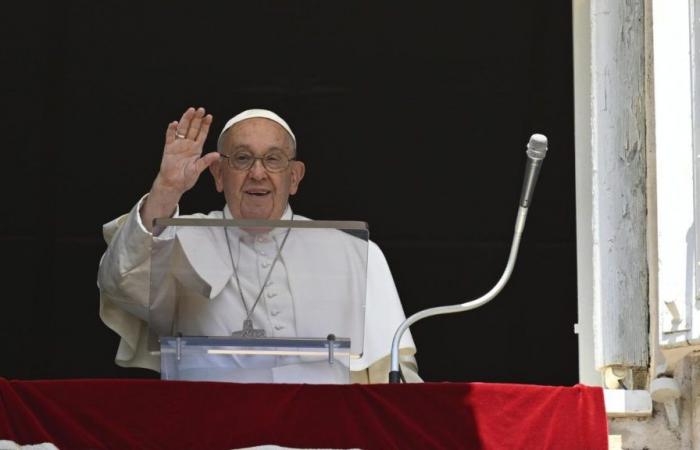At the Angelus, Francis focuses on the double Gospel story of the healing of the woman with a hemorrhage, who touches Jesus’ cloak, and the resurrection of Jairus’ daughter. He explains the meaning of touching and letting oneself be touched, an expression of a God who comes into contact with people’s pain and does not discriminate. “We need a Church and a society that exclude no one, that treats no one as impure”
Antonella Palermo – Vatican City
It is the biblical episodes that have to do with the sense of touch as a channel of healing and resurrection, presented in today’s liturgy, June 30, that inspired the Pope, in the last Sunday Angelus of the month, for his catechesis from the window of the Apostolic Palace. The protagonists, who are rehabilitated for relationships, are two women: the hemorrhaging woman met on the street by Jesus, who touches the hem of his cloak so as to be met by his gaze, and Jairus’ daughter who, although already declared dead , receives a visit from Jesus and is brought back to life through that man Son of God who takes her by the hand.
Impurity comes from an impure heart
What is impurity? The two women are considered impure by the society of the time, there can be no physical contact with them. Jesus undermines this custom: he lets himself be touched and is not afraid to touch. It is a revolutionary trait of the Messiah’s action that Pope Francis underlines by saying it twice: Jesus allows himself to be touched and is not afraid to touch.
Even before the physical healing, He undermines a mistaken religious conception, according to which God separates the pure on one side and the impure on the other. Instead, God does not make this separation, because we are all his children, and impurity does not come from foods, illnesses, or even from death, but comes from an impure heart.
God is not ashamed of us, he does not judge us
The Christian God is a God who comes close, who takes us by the hand, who urges us to get up from our bed or corner of suffering, to walk, to move forward. The Pope insists on the peculiarity of a God who has “suffered all the consequences of sin” to save man. “This is beautiful,” observes Francis.
In the face of suffering of the body and spirit, the wounds of the soul, the situations that crush us, and even in the face of sin, God does not keep us at a distance, He is not ashamed of us, He does not judge us; on the contrary, He approaches to be touched and to touch us, and He always raises us from death.
We need a welcoming Church and society
As he usually does, Francis concludes his catechesis by asking questions to stimulate discernment in the light of the Gospel, a living Gospel. The Pope invites us to consider what obstacle we have in front of others, intimidates us, leads us not to get our hands dirty. Do we only enter into relationships with those who share our tastes and preferences? “Everyone answer themselves. ‘Does God label people? And I live continuously labeling people?’. Here is the Pope’s appeal:
We need a Church and a society that exclude no one, that treats no one as “impure,” so that each person, with their own history, is welcomed and loved without labels and prejudices, is loved without adjectives.
Pilgrims in St. Peter’s Square







